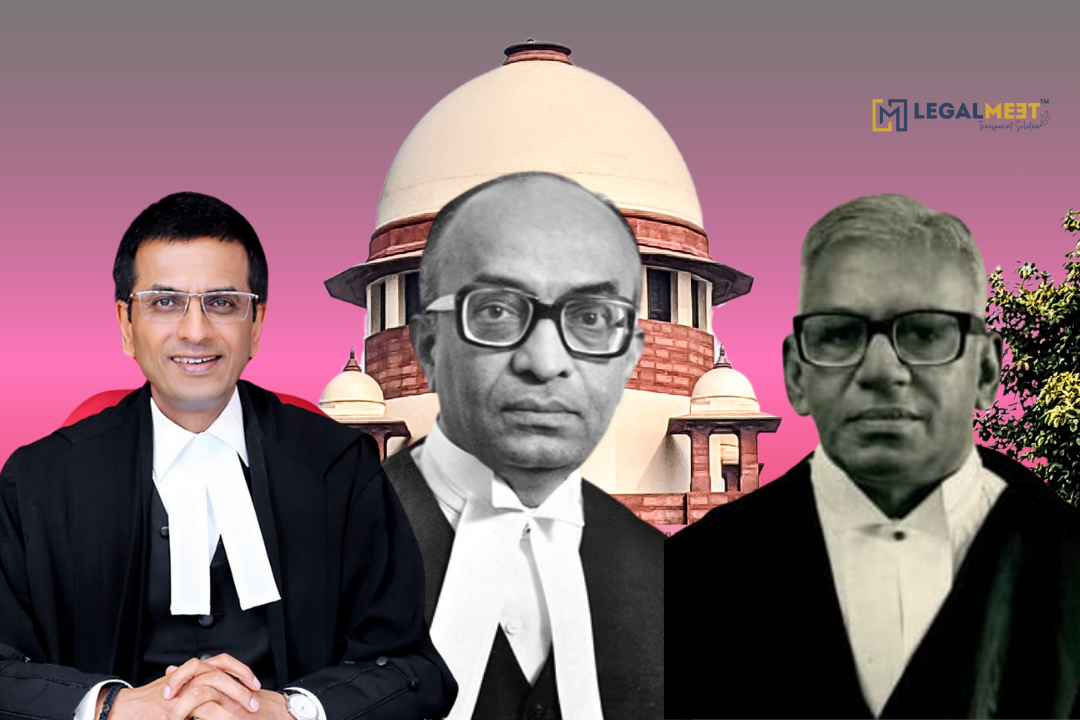
"Supreme Court Overrules Justices Iyer & Reddy on Private Property, Affirms Economic Democracy"
The Supreme Court, with a 7:2 majority, has ruled that it was incorrect to interpret all private property as "resources of the community" that the State must distribute for the common good under Article 39(b) of the Indian Constitution. In this new judgment, Chief Justice DY Chandrachud clarified that the earlier opinions of Justice VR Krishna Iyer (in the 1978 State of Karnataka v. Ranganatha Reddy case) and Justice O Chinnappa Reddy (in the 1983 Sanjeev Coke Manufacturing Company v. Bharat Coking Coal Ltd. case) were mistaken. Chief Justice Chandrachud explained that interpreting Article 39(b) to include the distribution of all private resources would essentially support a specific economic philosophy and structure. He noted that Justice Krishna Iyer's judgment in Ranganatha Reddy, which later influenced cases like Sanjeev Coke and Bhim Singhji, was shaped by a particular economic perspective. In Ranganatha Reddy, Justice Krishna Iyer pointed out that Article 39(b) directs the State to dismantle systems of property tied to feudal and capitalist ideals. In Bhim Singhji, Justice Iyer even referenced Karl Marx, arguing that taking over large land holdings was necessary to truly fulfill Article 39. Similarly, in Sanjeev Coke, Justice Chinappa Reddy remarked that Article 39(b) reflects socialist ideas commonly seen in writings by socialist thinkers. In essence, the way Article 39(b) has been interpreted in these judgments reflects a particular economic view—one that sees state ownership of property as beneficial to the nation, according to the Chief Justice of India (CJI). The CJI highlighted that the Constitution does not adhere to any strict economic model and instead supports economic democracy. While Justices Krishna Iyer and Reddy pointed to the framers' vision to support this view, the CJI noted that the Constitution does not impose a fixed economic path on future governments. Referring to Dr. B.R. Ambedkar's words in the Constituent Assembly Debates, the CJI emphasized that the Constitution was designed to be broad and flexible, allowing future governments to shape economic policies as needed to serve the people. Dr. Ambedkar believed that if the Constitution required a specific economic or social structure, it would limit people’s freedom to choose the society they want to live in. Economic democracy, he argued, is not about choosing socialism or capitalism; it’s about the goal of creating a welfare state that serves the needs of all. The Court’s role is not to set economic policy but to support the intent of the Constitution’s framers to build a foundation for "economic democracy," stated the Chief Justice in the judgment. The judgment pointed out that India’s governments have tried different economic approaches over time. In the 1950s and 1960s, right after independence, the government focused on planning a mixed economy, prioritizing heavy industries and reducing imports. In the late 1960s and 1970s, there was a move towards more "socialist" policies. Since the 1990s, with liberalization, India has shifted towards market-driven reforms. Today, the economy sees both public and private investments playing important roles. The Chief Justice of India (CJI) noted that Justice Krishna Iyer's approach had a doctrinal flaw: it proposed a strict economic theory where the state controls private resources as the only way to run a government according to the Constitution. However, CJI emphasized that our Constitution’s framers aimed to build an "economic democracy," trusting elected leaders to guide the economy. This vision, CJI explained, has fueled India’s rapid economic growth, helping it become one of the fastest-growing economies in the world. The judgment cautioned against limiting the Constitution to just one economic theory that views state control over private property as the ultimate goal. Such a view, it said, would weaken the foundational principles of our constitutional system. The majority opinion held that private property could be included under Article 39(b) if it serves as a significant resource for the community. This means that deciding if something is a "community resource" should depend on factors like the resource's nature, its impact on public welfare, its scarcity, and the possible risks if it’s concentrated in private hands. The "public trust" doctrine may also apply here. Certain privately-owned resources, such as forests, ponds, or environmentally sensitive areas, can affect the community and the environment and may therefore fall under Article 39(b). Other limited, valuable resources, like airwaves, natural gas, minerals, and mines, could also sometimes come under state control, especially if they are in private hands but essential for public interest. Case Details: Property Owners Association v. State of Maharashtra (CA No.1012/2002) & Other Connected Matters www.legalmeet.in
